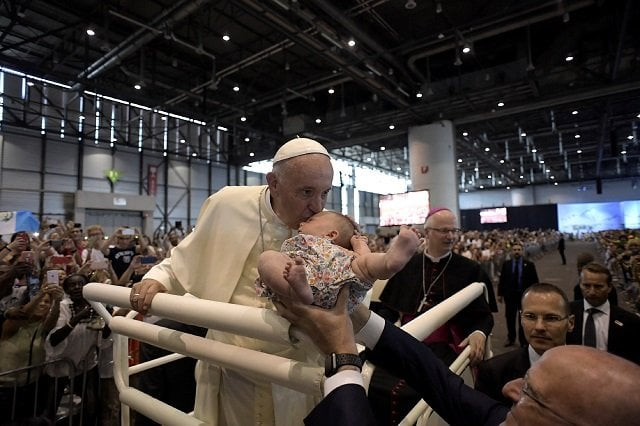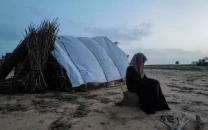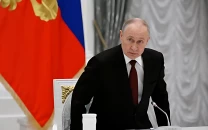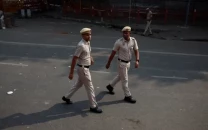Pope to make Vatican changes in push for reform, transparency
Among other decisions, Francis also decides that Office of Papal Charities will henceforth be headed by a cardinal

Papal Charities, will henceforth be headed by a cardinal, the highest position in the Church after the pope himself. PHOTO: REUTERS.
The pope disclosed his decisions in a rare sit-down interview at his residence, during which he also spoke of migration, China, freedom of the press, sexual abuse and the role of women in the Church.
During the two-hour interview last Sunday night, Francis said he had decided that the Office of Papal Charities, otherwise known as the pope’s almoner, will henceforth be headed by a cardinal, the highest position in the Church after the pope himself.
The current head of that office will be promoted and his successors will have the same rank. This will institutionalise a higher profile for the department that oversees help for the poor.
Pope's envoys in Chile to 'ask forgiveness' over sex abuse
“It think there are two long arms of the pope that of being custodian of the faith, and there the work is done by the Congregation for the Doctrine of the Faith, and the prefect has to be a cardinal,” Francis said.
“And the other long arm of the pope is the almoner, and there must be a cardinal there. These are the two long arms of the pope faith and charity.”
Polish Archbishop Konrad Krajewski currently heads the office, whose roots go back to the early 13th century. He will be raised to the rank of cardinal in a ceremony along with 13 other Churchmen on Thursday.
The almoner’s office has not had a cardinal at its head in living memory.
Under Francis’ direction Krajewski has revitalised the office. He is often seen on the streets of Rome in simple, non-clerical clothes helping the homeless.
He has set up shower stalls and medical facilities for the homeless, elderly and destitute near St. Peter’s Square and taken groups to the circus and even on private tours of the Sistine Chapel.
In order to press his vision of a more merciful, less bureaucratic Church, Francis has broken with the custom of automatically naming cardinals to head major dioceses around the world. Five major Italian cities who have always had cardinals are currently without them.
Chile prosecutors raid Catholic Church offices amid sex abuse probe
Francis also said that before the end of the year he was considering making changes in the group of cardinal advisors from around the world known as the C-9. The group, which meets with him periodically in Rome, began its work five years ago.
He said he may take advantage of the upcoming anniversary “to renew it a bit”, but that it would not be to “cut heads.”
Two of the members of the C-9, Australian Cardinal George Pell and Chilean Cardinal Francisco Javier Errázuriz Ossa, are under a cloud for allegations related the Church’s sexual abuse scandal. Both have denied any wrongdoing.
Francis said he was going to shake things up at APSA, a sort of general accounting office that manages the Vatican’s real estate holdings in Rome and elsewhere in Italy, pays salaries of Vatican employees, and acts as a purchasing office and human resources department.
80 priests accused of child sex abuse ahead of Pope's Chile visit
He said that the current APSA head, Italian Cardinal Domenico Calcagno, had offered his resignation when he reached the age limit of 75 in February and that it would be accepted later this month.
“I am studying candidates who have an attitude of renewal, a new person after so many years,” he said. “Calcagno knows the functioning well but perhaps the mentality has to be renewed.”
Francis said he was mostly happy about reforms enacted to make once-scandalous Vatican finances more transparent. The Vatican bank, which closed hundreds of suspicious or dormant accounts, “now works well”, he said.
But he was concerned that “there is no transparency” in the Vatican’s real estate holdings, which are mostly in Italy and many of which were donated over the years. “We have to move ahead with transparency, and that depends on APSA,” he said.



















COMMENTS
Comments are moderated and generally will be posted if they are on-topic and not abusive.
For more information, please see our Comments FAQ